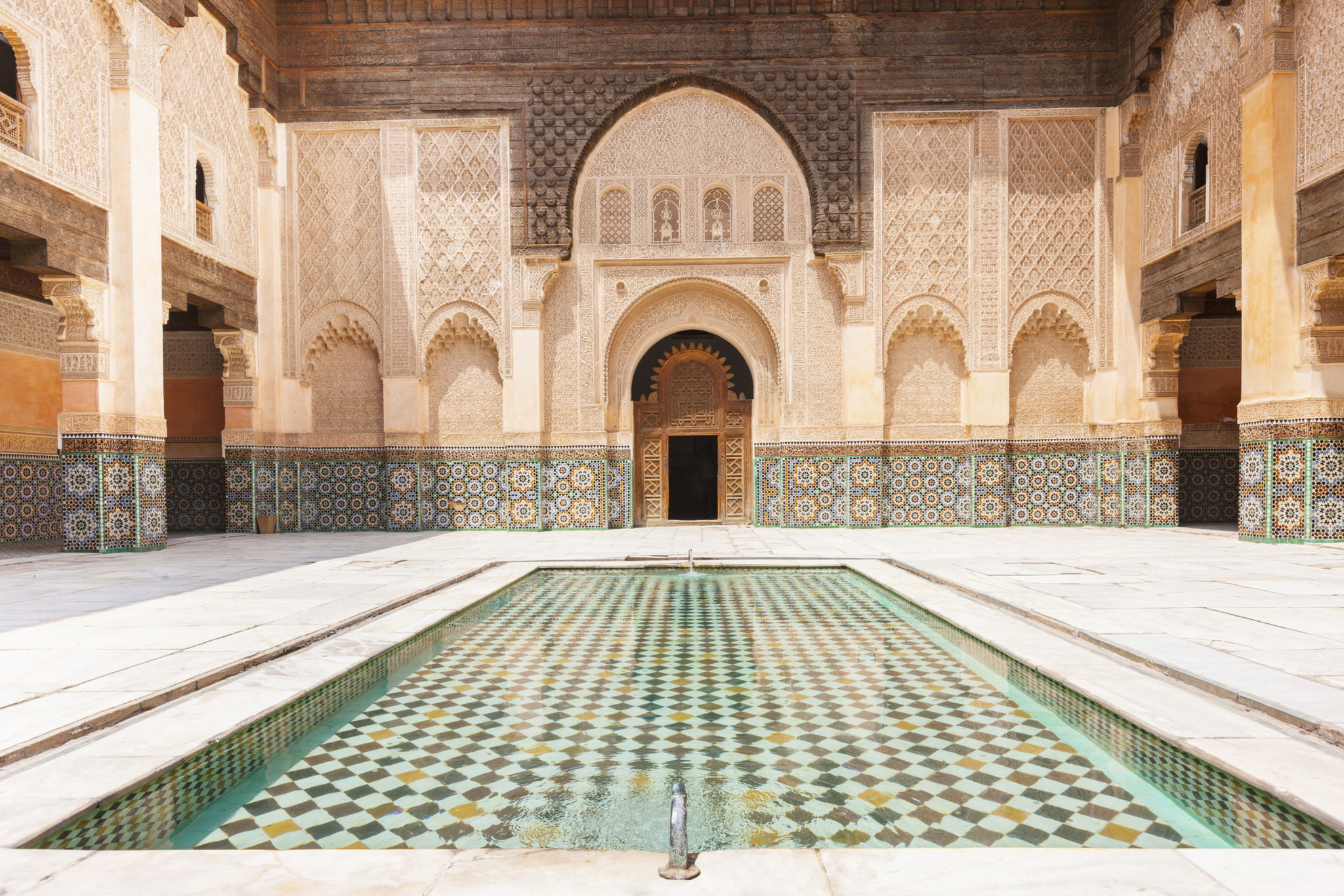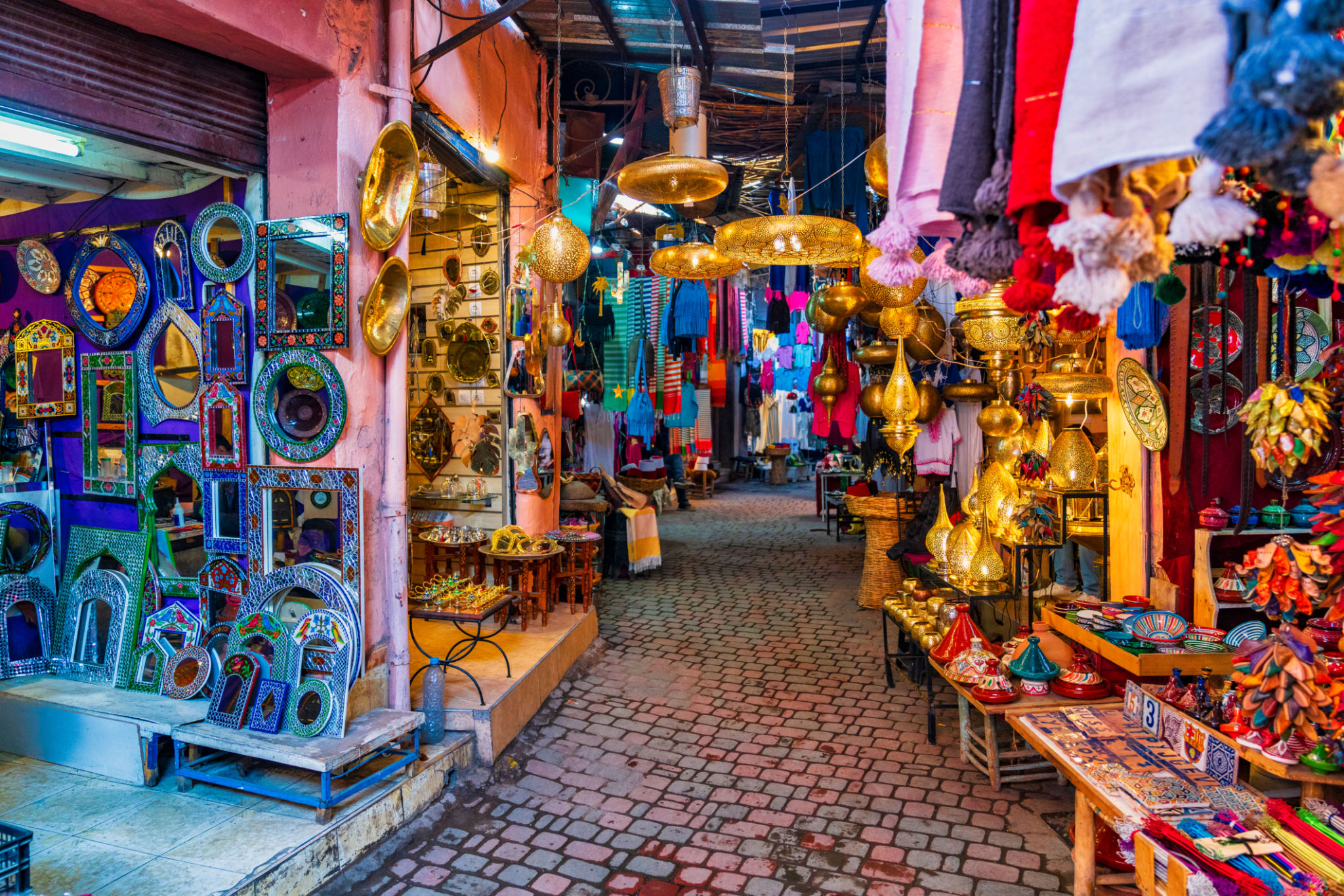A Comprehensive Guide to Moroccan Culture and Traditions
Introduction to Moroccan Culture
Morocco, a North African country with a rich tapestry of history, offers a vibrant blend of cultures influenced by Arab, Berber, African, and French traditions. Its unique cultural heritage is evident in its architecture, cuisine, and everyday life. Visitors to Morocco are often captivated by its colorful souks, intricate tilework, and welcoming hospitality.

The Art of Moroccan Cuisine
Moroccan cuisine is renowned for its bold flavors and harmonious blend of spices. A typical Moroccan meal often starts with a series of salads followed by a main course such as tagine, a slow-cooked stew made with meat, vegetables, and aromatic spices. Another staple is couscous, traditionally served on Fridays.
Spices such as cumin, saffron, and cinnamon are integral to Moroccan cooking. The use of fresh herbs like mint and parsley adds a refreshing touch to many dishes. Street food is also popular, with offerings like chebakia (sweet pastries) and harira (a hearty soup).

Traditional Clothing
Clothing in Morocco is a reflection of its diverse culture. The djellaba, a long, loose-fitting robe with a hood, is common attire for both men and women. It is not only practical for the varying climate but also symbolizes Moroccan identity. For special occasions, women often wear the intricately designed kaftan, adorned with embroidery and sequins.
The traditional slippers known as babouches are often worn with these garments. Made from soft leather and available in an array of colors, babouches are both comfortable and stylish.

Music and Dance
Moroccan music is as diverse as its culture, with influences ranging from Arabic to Berber and Andalusian music. The gnawa music, with its rhythmic and spiritual sounds, is particularly popular. Festivals celebrating music and dance are common throughout the country, with the Mawazine Festival in Rabat being one of the largest.
Dance is also an integral part of Moroccan culture, with traditional dances like the ahwach, performed by Berber communities in the Atlas Mountains. These dances are often accompanied by lively music played on traditional instruments like the oud and the darbuka.

Cultural Etiquette and Traditions
Hospitality is a cornerstone of Moroccan culture. Visitors are often greeted with a warm cup of mint tea, known as "Moroccan whiskey." When visiting a Moroccan home, it is customary to bring a small gift such as pastries or flowers.
Respect for elders is deeply ingrained in Moroccan society. It is polite to greet the eldest person first in any social gathering. During meals, eating with the right hand is considered proper etiquette.
The Influence of Religion
Islam plays a significant role in shaping Moroccan culture and traditions. The call to prayer echoes five times a day across cities and villages. Many Moroccans observe religious practices such as fasting during Ramadan and participating in communal prayers.
Mosques, with their stunning architecture and intricate tilework, are central to community life. The Koutoubia Mosque in Marrakesh is one of the most iconic religious sites in Morocco.

Art and Crafts
The art of Moroccan crafts is celebrated globally for its beauty and craftsmanship. From handwoven rugs to intricately designed pottery, these crafts are a testament to Morocco's rich artistic heritage. The city of Fez is particularly famous for its ceramics, while Marrakech is known for its leather goods.
Markets, or souks, are bustling hubs where artisans showcase their work. Visitors can find unique items such as brass lamps, textiles, and jewelry, each telling a story of its origin.
Conclusion: Embracing Morocco's Diversity
The diversity of Moroccan culture is what makes it so fascinating to explore. Whether you're wandering through ancient medinas or savoring traditional dishes, each experience offers a glimpse into Morocco's vibrant history and traditions. Embracing this diversity allows visitors to connect with the heart of Moroccan life and leaves them with unforgettable memories.

